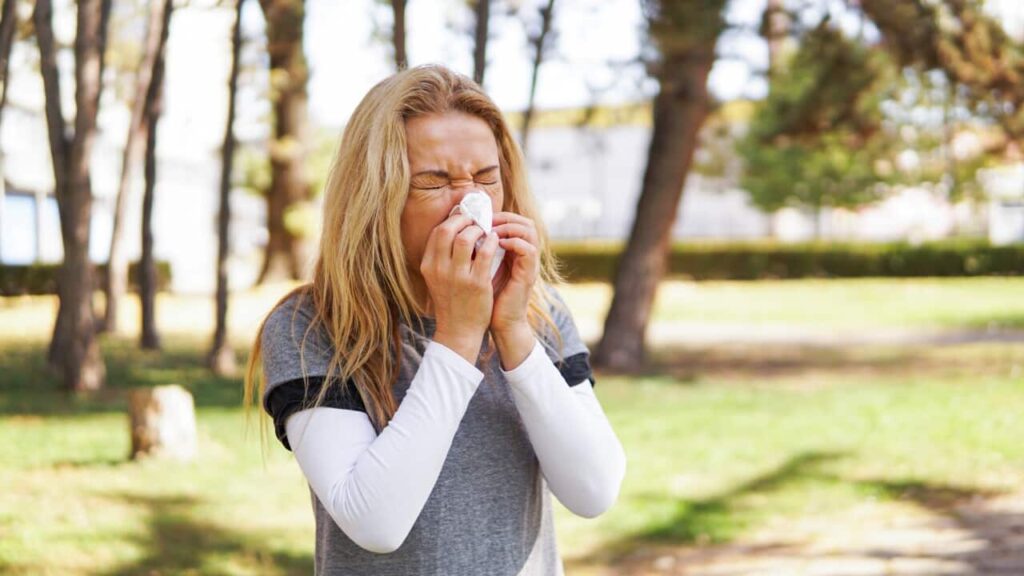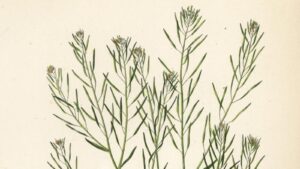
Springtime in Australia heralds the arrival of warmth, vibrant blossoms, and longer days. However, for millions of Australians, it also marks the peak of pollen season, triggering hay fever and allergy-induced asthma. As nature awakens, so too do the challenges faced by those with respiratory allergies.
Hay fever, or seasonal allergic rhinitis, occurs when the immune system overreacts to pollen, particularly from grasses, resulting in irritation of the nose and eyes. Asthma symptoms can be exacerbated when pollen fragments enter the lungs, leading to coughing, wheezing, and difficulty breathing. With one in four Australians experiencing hay fever and about 10 percent living with asthma, these conditions are among the nation’s most common allergic afflictions.
Understanding Seasonal Allergies
The onset of spring sees grasses, trees, and plants releasing pollen into the air, triggering immune responses in those sensitive to it. Respiratory and allergy physician Adjunct Associate Professor Joy Lee, Co-Chair of the Respiratory Allergy Stream at the National Allergy Centre of Excellence, explains:
“Grass pollen is a major cause of allergic rhinitis, also known as hay fever, and seasonal allergic asthma. Together, these are known as respiratory allergies. About a quarter of the Australian population are affected by hay fever and about 10 percent by asthma. The two conditions often coexist, so if you have one, you have a higher risk of having the other.”
In south-eastern states like Victoria, New South Wales, and the Australian Capital Territory, introduced ryegrass is a leading cause of hay fever, with pollen seasons running from September to January, peaking in November. Meanwhile, in regions like Queensland, tropical grasses may extend pollen seasons through summer to February and March.
Identifying Symptoms of Hay Fever and Asthma
Typical symptoms of hay fever include sneezing, a runny nose, itchy and watery eyes, blocked sinuses, and headaches, often leading to fatigue. If pollen particles reach the lungs, asthma symptoms such as persistent coughing, wheezing, shortness of breath, and chest tightness can occur.
Brisbane resident Micaela Diaz describes the impact:
“The symptoms are quite chronic. They can actually leave me housebound and range from really itchy skin and hives, to sneezing and coughing, and a lot of sinus symptoms, blocked nose, itchy watering eyes, which kind of makes you look like a bit of a zombie sometimes.”
Effective Management of Seasonal Allergies
For many, springtime allergies can feel overwhelming. However, with preparation, symptoms can be managed effectively. Micaela shares her strategies:
“When we’re coming towards spring, it’s making sure I have the right medications on deck… and little things like changing when or where I open my windows depending on the wind. Washing clothes inside or taking sheets to a laundromat to dry instead of hanging them out. It’s all about minimising that risk.”
Available Medical Treatments
General Practitioner Dr. Duncan Mackinnon from regional NSW notes that respiratory allergies make up a significant portion of his clinic’s workload during spring and summer. He emphasizes the importance of self-management:
“Most of this is treatment with over-the-counter medications. The important thing is teaching people to manage their conditions themselves.”
Dr. Mackinnon lists treatment options, including:
- Antihistamines (tablets or sprays) for quick relief of hay fever
- Decongestants (short-term use only) to ease blocked noses
- Ventolin inhalers for asthma relief
- Preventative corticosteroids (nasal sprays or inhalers) to reduce inflammation—best started before peak season.
For more severe cases, referrals to specialists such as allergists or immunologists can provide further diagnostic tests and treatments, including skin prick testing to identify specific allergen sensitivities.
The Role of Immunotherapy
Immunotherapy offers a long-term treatment approach by gradually exposing the immune system to small doses of the allergen, aiming to desensitize the body. Professor Lee explains:
“We give it to people in small doses to try and get the immune system instead of having that overreaction when it’s exposed to the allergen, to become what we call desensitized or more used to it.”
The Impact of Weather on Allergies
Pollen counts fluctuate daily and are influenced by weather conditions. Forecasts available online and via mobile apps rate days as mild, moderate, severe, or extreme. Thunderstorms, in particular, can exacerbate allergies, sometimes leading to thunderstorm asthma.
Dr. Mackinnon warns:
“It’s a perfect storm—humidity, warmth, season, and wind. It causes a massive release of pollen into the air. For susceptible people, this can be dangerous.”
On high-pollen days or during storms, it is advisable to keep windows and doors closed, avoid outdoor exposure, and wear sunglasses or a mask if going outside.
Preparing a Management Plan
Preparation is key to managing seasonal allergies effectively. Professor Lee advises:
“If you have a history of symptoms during this time, it’s worthwhile having a chat to your GP so you can have a plan in place.”
A management plan may include starting preventer medication early, having reliever treatments ready, and monitoring pollen forecasts daily. Despite her struggles, Micaela remains optimistic:
“It’s frustrating… but it’s okay—you’re not alone. You can manage it, you can get through it. It just takes time to learn what works for you.”
Helpful Resources for Allergy Sufferers
- AusPollen – The Australian Pollen Allergen Partnership
- Pollen Forecast – Australian Aeroallergen Network
- Melbourne Pollen Count
- Sydney Pollen Count
- Darwin Pollen Count
- Perth Pollen Count
- National Allergy Centre of Excellence
- Asthma Australia
- Allergy & Anaphylaxis Australia
- Australasian Society of Clinical Immunology and Allergy
The information contained in this article is general and not specific advice. If you are concerned about hay fever, asthma, or allergy symptoms, seek medical advice from your doctor or pharmacist for accurate information relevant to your situation. In an emergency, call triple zero (000) immediately.





